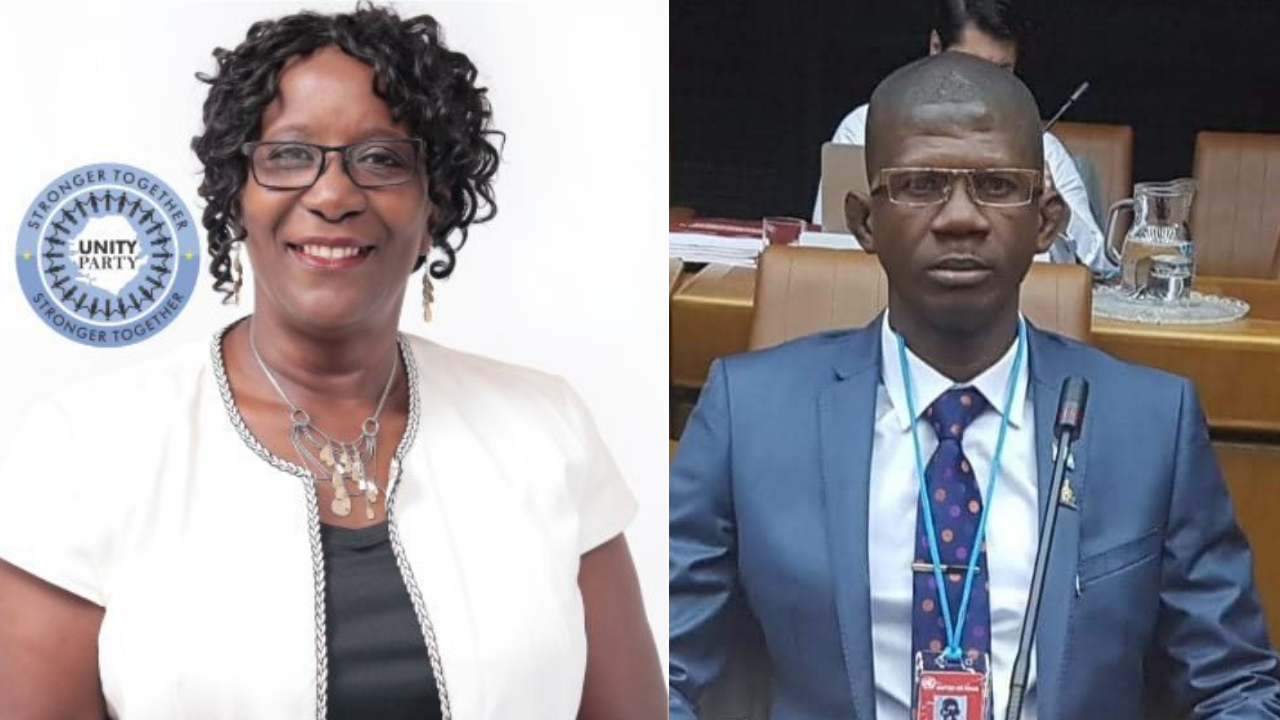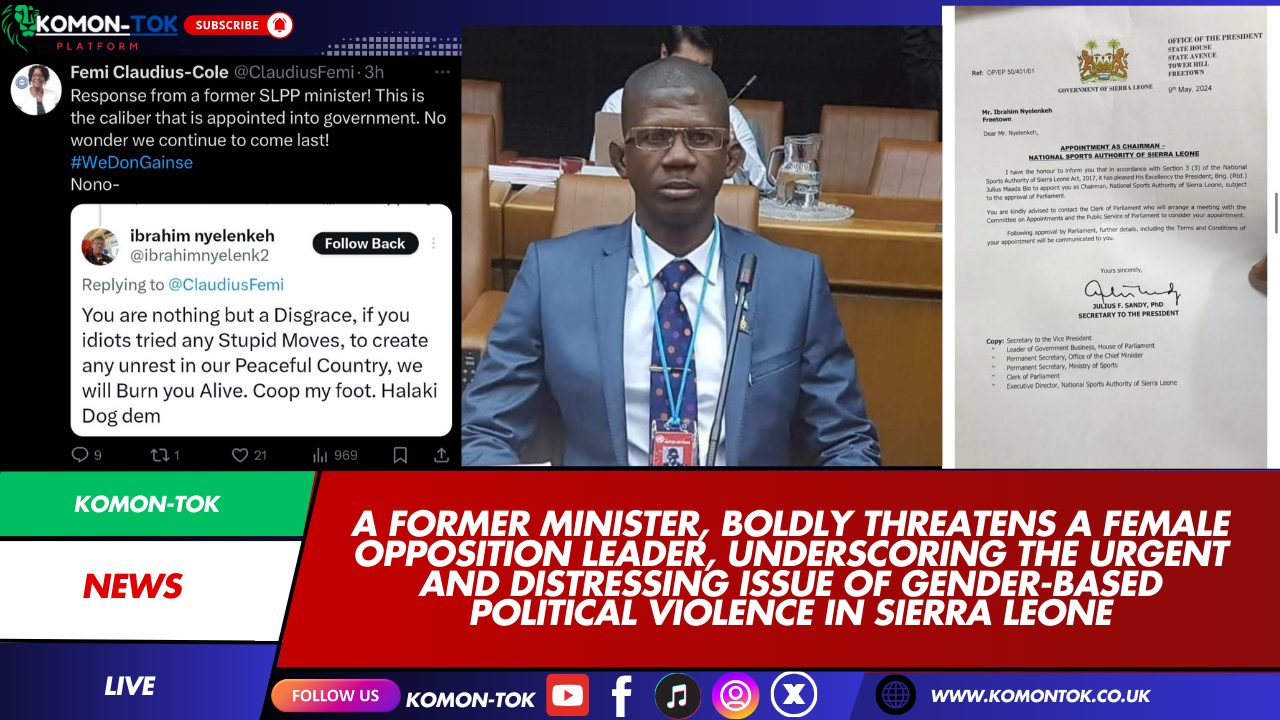
The issue of gender-based violence (GBV) and online harassment targeting women in Sierra Leone has recently escalated, exemplified by a threatening message that emerged on the social media platform X (formerly Twitter). Disturbingly, this message was composed by Ibrahim Nyelenkeh, a member of Julius Maada Bio’s Paopa regime and the current Chairman of the National Sports Authority (NSA), who has also held the position of Minister of Sports.
Nyelenkeh directed his aggressive message towards Dr. Olufemi Claudius-Cole, a notable opposition leader and the first Sierra Leonean woman to establish a political party (the Unity Party) and to run for the presidency in Sierra Leone. She remains a singular figure in the nation’s political landscape, leading a political party in a country characterized by deep-rooted patriarchy.
The tone of Nyelenkeh’s message was overtly threatening and included violent declarations such as, “We will burn you alive,” accompanied by derogatory language intended to further insult the recipient. This incident is not an isolated case but rather a stark representation of an alarming trend in Sierra Leone, where women, particularly those who actively participate in political and public life, face harassment and intimidation from individuals in power, particularly within the current administration.
Gender-based violence is persistently utilized as a means of oppression against women in Sierra Leone. The nation continues to grapple with severe issues like widespread poverty, corruption, and fragile governance. In this context, the actions of a senior government official set a perilous precedent. When those in authority employ violent threats against women, it communicates to society that such behavior is acceptable, if not encouraged. Women, who are already marginalized in political and public realms, encounter even greater obstacles when faced with threats of violence.
Cyberbullying has become a tactic employed by the Bio regime to silence women. Although the global rise of digital platforms has empowered women to challenge patriarchal structures and advocate for change, in Sierra Leone, these same platforms have turned into arenas for online harassment and bullying orchestrated by government officials. The aforementioned threatening message is a clear illustration of this issue. For women in Sierra Leone, public threats serve to humiliate, intimidate, and dissuade them from engaging in political activism or confronting authority.
The aggressive actions of Nyelenkeh and other officials within the Bio regime have wider implications in a nation already classified as one of the most fragile states globally. The normalization of threats and violence by public figures undermines public trust in governance, weakens the rule of law, and intensifies societal tensions. It also cultivates an environment of impunity, whereby politically influential individuals feel entitled to act violently towards women without fear of repercussions.
For Sierra Leone, a nation still healing from the wounds of conflict, the rise in violent rhetoric—especially from members of the current regime, including Julius Maada Bio, his wife, and various cabinet ministers—poses a serious threat to the country’s peace and stability. Women, who disproportionately suffer the consequences of conflict and instability, are particularly impacted when societal tensions escalate.
The violent cyberbullying directed at a woman merely exercising her right to speak out must be unequivocally condemned. Remaining silent in the face of such threats equates to complicity. The international community, civil society organizations, and all citizens of Sierra Leone must come together to demand accountability for such reprehensible actions from officials whose high salaries are funded by taxpayers.
As has become customary, Julius Maada Bio’s government has not publicly denounced Nyelenkeh’s attack, and it is unlikely that any disciplinary measures will be taken against him. Regrettably, those in positions of authority in Sierra Leone seem more preoccupied with exploiting the power associated with their high-salaried roles through violent rhetoric and intimidation, neglecting their responsibility to exemplify behavior that fosters respect and inclusivity in society.
It is imperative that we collectively insist on holding those in power accountable for their actions and words. Sierra Leone cannot afford to disregard the voices of its women or the threats directed towards them. Only through unity, justice, and accountability can the nation progress towards a more equitable and peaceful future.







